A new negative pressure ventilation assistance device using knowledge developed by Marshall Aerospace and Defence Group during the Covid-19 pandemic looks set to go into mass production thanks to a new partnership with Indian based ventilator manufacturer Skanray.
The firm say that the non-invasive Marshall Exovent-19 prototype negative pressure ventilation assistance device was developed to provide additional treatment options for any patient with respiratory failure, including those with COVID-19, with the benefit of offering greater patient comfort as they don’t need to be asleep or have an artificial airway in place.
Marshall has shipped two of its protoype exovent machines designed and manufactured at its Cambridge headquarters, direct to Skanray who hopes to be able to use them, along with the supporting design information to develop a relatively low cost production model that can be rapidly approved and developed for mass distribution as quickly as possible. Once approved by the relevant regulatory bodies, the device will have wider applications beyond COVID for the treatment of patients with other respiratory conditions.
MADG Chief Engineer Mark Johnston explains:
“We were approached early on in the pandemic by the exovent Task Force of academics and medics who had come up with the idea of developing a non-invasive, negative pressure ventilator to help address the potential shortage of ventilators for Covid-19 patients. We very quickly saw the massive benefits that the exovent could deliver and took the decision to offer up the services of our engineering and on-site manufacturing teams to help develop the concept into a fully functioning product.
This involved the rapid understanding of the medical drivers that would make this a success. We very quickly came up with a prototype that allowed the medical team to gain first-hand experience of a realistic unit. That was a really great feat, from the start to the point at which the medics were able to get their hands on it was about four weeks in total. We could not have done that without the skills of our engineering and manufacturing teams working closely together. With the great feedback from that prototype we then matured the product and built four pre-production units that have gone through some stringent testing. These ranged from tests to ensure that the product does not interfere with other critical medical devices to how it can be effectively cleaned; both really important in an intensive care setting.
We were really lucky to be working with a number of very well respected frontline doctors and nurses and throughout the programme to deliver a product that is ready for mass manufacture once all of the clinical approval has been completed. We are delighted to be able to hand the project over to Skanray and are optimistic that, using their existing expertise in large volume ventilator manufacture, they will be able to achieve a product that not only has all the advantages in terms of patient comfort and recovery but will also be affordable for use in developing nations that might take some time to roll-out the vaccine. Everyone here at Marshall is incredibly proud of the contribution that we have made in making the exovent a reality and it is a great, albeit very different, example of the work we do to help protect people in critical situations.”
Dr Malcolm Coulthard, from the exovent team, said:
“We firmly believe that the use of negative pressure devices can transform the patient journey for COVID-19 patients and those with pneumonia and other diseases that affect breathing. We are incredibly grateful to Marshall for deploying their significant expertise and skills to help realise our vision.”
Marshall is also hoping to secure a similar arrangement with a UK based manufacturer in the coming weeks.


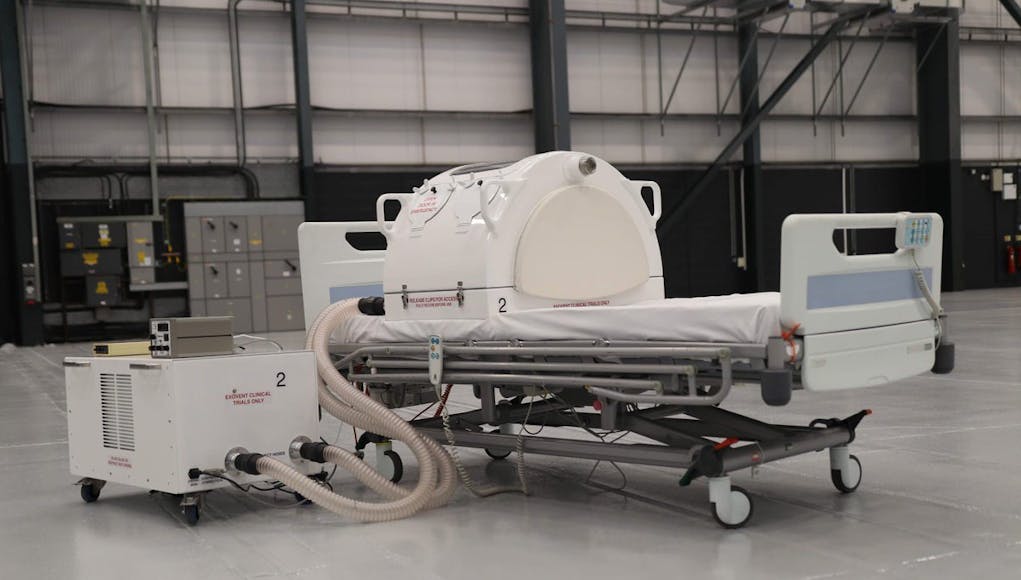
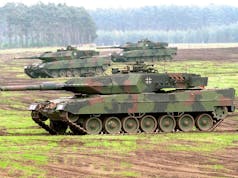
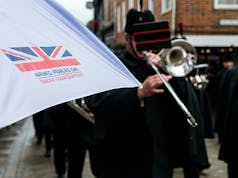
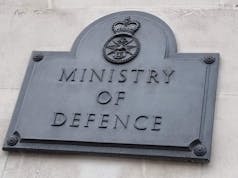




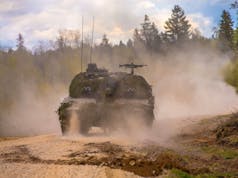



This is precisely the sort of nimble innovative business that global or indeed Island Britain will need to specialise in. Great ideas still in this country, plenty of top end engineering nous but turning that into competitive and sustainable business has been mostly appalling in the post war environment.
I couldn’t agree more but there does appear to be a lot of good news around innovative and high tech industries.
Another point to note is that linking up with Indian companies appears to be increasingly popular. I welcome shift away from China.
Cheers CR
That looks rather like a modern day iron lung?
Given that the issue is not the respiratory muscles being paralysed and the fact that the lungs are congested and damaged by the reaction to COVID I don’t understand how this helps?
I can well understand how ventilation without intubation is a good idea as this will lessen the damage and recovery.
Is this seen as a half way house or even an adjunct to CPAP?
My first thought also, SB. Shows we are both getting on a bit though, if we remember those!
Iron lung indeed: https://media.mscsoftware.com/cdn/farfuture/mqRp1NcUWhXJIpd6i7TEfsH0pIzr6BRxzZM2gMIAbR4/mtime:1603144865/sites/default/files/hexagon_mi_msc_casestudy-marshall_a4_web.pdf#:~:text=The%20Negative%20Pressure%20Ventilator%20%28NPV%29%2C%20developed%20by%20Marshall,to%20speak%20after%20being%20put%20on%20the%20ventilator.
I still find the UK covid stats mind boggling:
https://coronavirus.data.gov.uk/easy_read
A total of 31670 people currently in hospital, and 3625 on ventilators, obviously ventilators are in high demand.
The latest covid stats here in Australia shows a total of 55 active cases across the country, mostly people returning from overseas (they automatically go into 14 day quarantine), only eight (8) in hospital and zero in ICU.
In the UK we have 1,953,699 active cases of Covid
That 3625 in serious\critical condition was much higher, but we had many more deaths over the last few days.
Pretty scary figures.
Glad I’m here in Oz
We have plenty of ventilators they aren’t in short supply at all but the staffing numbers to use them are the issue. Ventilator patients require pretty much constant nurse coverage. Most in the NHS wont be specialists in that field, along with staff having to isolate caused a worrying situation.
Having all of the equipment is one thing (and that’s great), but it’s not much good if the manpower is stretched to the limit or beyond.
Again, glad I’m here in Oz and not the UK (or most of the rest of the world too).
We planned and prepared for the worst, add strict quarantine and the vast majority accepting social distancing, etc, we’ve come through things pretty well in the last 12 months.
Not that us Aussie’s care much for being told what to do, we don’t, and being convicts and all (I’ve got convict ancestors!).
But, despite grumbling about the strict rules, we more or less as a nation said “fair enough, if this is what we have to do to protect everyone, we’ll do it”.
Cheers,
The advantages of living in a huge country with a tiny population and a warm climate.
Yes we do have a large country, and yes it is sparsely populated for its size, but don’t forget most of us live in the large cities, Sydney 5.3m, Melbourne 5m, Brisbane 2.5m, Perth 2m, etc, it’s not like there is a 5km gap between houses to the next neighbour.
Anyway, we have been lucky, and we’ve also made our luck too by locking down borders early, etc.
If the UK had closed its boarders months ago, I doubt it would have made little difference, plus France Germany ect haven’t totally closed boarders either until recently. And the UK is a global travel/business hub, there has to be some balance on how all this affects our economy. Fortunately the vaccine roll out is going really well, 12.3M have now had the first jab.
Comparing the U.K. with Australia is pointless exercise. We’re currently in our winter – the virus survives longer in colder weather – while Australia is in its summer.
But the greatest difference is population density – the virus can only spread by people being close together.
Early on anti lockdown types would compare Sweden with the U.K. to try and backup their arguments. Relying solely on deaths/million population rates they attempted to show Sweden was a success. In reality, if you compare Sweden with its neighbours Norway and Finland, which have both similar population-densities to Sweden along with a similar culture, you then find Sweden has performed disastrously. It’s death-rate is over 12 times larger than its neighbours.
Yes that is right Sean. There are so many variables to explain the difference in infection rates. Almost no two nations are the same. Once this is over there will be mountains of data to sift through. The total number of deaths will also need to be adjusted as the current criteria is quite wide. Many lessons to be learnt.
Even with the U.K. there’s significant differences between the 4 nations.
I think we’ll never get a true figure for the number of deaths. Best guide will be excess deaths, which will be an over-estimate, but one that can’t be fiddled.
A return of the iron lung. Albeit in a much more modern and compact system. Negative pressure ventilators do have an interesting future as they do offer potential advantages vs traditional intensive care.
And maybe in combination with CPAP to gain the dual advantage?
Well done. Congratulations to all concerned. I am surprised I have not heard about this on the B.B.C.
This is very niche news, the BBC cover general news items.
the BBC does not cover anything that makes the UK look good
As George wrote, ‘the BBC covers general news’!